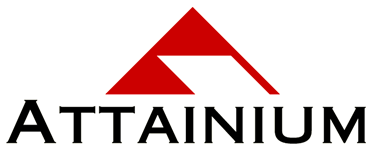Joint IFMA-BOMA program features participation of local first responders
Representing the property management professionals of Philadelphia and the surrounding area, the Building Owners and Managers Association (BOMA) of Philadelphia and the International Facility Management Association (IFMA) of Philadelphia are dedicated to providing members with education, leadership, and professional development services. An important component of this mandate is the safety of the occupants of Philadelphia’s numerous commercial office buildings. Toward this end, BOMA and IFMA cooperated to sponsor an exercise that focused on the potential need for building occupants to shelter-in-place (SIP).
“The City of Philadelphia has a mandate that companies of all sizes have a SIP plan in place,” said Mark Hennessy, facilities manager for Arkema Inc. and an IFMA member. “Attainium’s Disaster Experience table-top exercise was a real eye-opener for me; it helped me focus on whether I was prepared for a SIP event and shed light on some of the important issues to consider.”
“We selected Attainium based on the recommendations of other BOMA and IFMA groups,” said Frank Carbone of the IFMA Program Committee and the program coordinator for the session. “Attainium CEO Bob Mellinger has a high level of professionalism and knowledge of the subject matter, handles the situation well, and uses good communication to prepare people and take them through the process.
“From the feedback we received, everyone seemed to enjoy the program,” Carbone said. “There was a lot of buzz in the room during the session; groups were actively discussing what was happening, sharing ideas and coming up with solid approaches to the problems presented.”
Scott Shelley, a senior property administrator for PNC Bank, enjoyed working with the diverse group of people on his team. “The session was quite challenging and forced you to think ahead and anticipate what could happen. We got a chance to network and learn through sharing information, and I took back ideas I could share with others in my organization.”
Another important takeaway of the session is the necessity for a contingency plan, according to Hoyt Emmons, director of environmental health, safety, and security for Neose Technologies. “Everyone has to have a plan, but when a disaster strikes you need to be able to change things depending on the circumstances.”
“The better the planning, the better prepared you’ll be to handle it,” said Charles Stagner of what he took away from the session. “It was particularly helpful to have input from Philadelphia’s first responders,” said Stagner, who is a site director for the Defense Logistics Agency. “Philadelphia has a highly developed SIP plan to deal with potential chemical plant accidents, and they had some good input.”
“We brought in some high-level observers from the Philadelphia fire department, the local Red Cross, a counter-terrorism intelligence officer from the state, a representative of the US Attorney’s office, and others,” Carbone said. “As part of the Q&A at the end of the program, we asked them to comment on things from their perspective.”
“One of the things that Attainium advises all the groups we work with is to involve first responders in their planning because they have so much to offer in terms of their training and experience,” said Mellinger. “This was an excellent example of that advice put to terrific use, and I think it added an additional dimension to our exercise.”
# # #

